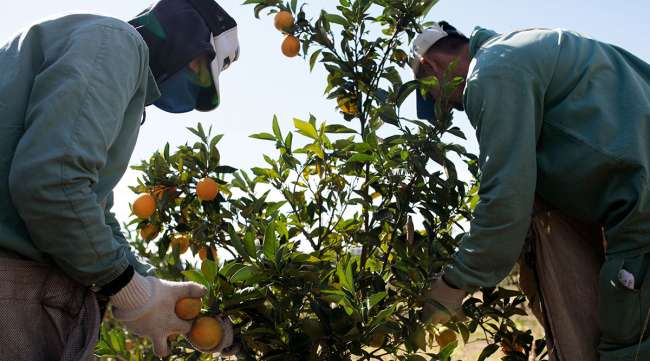Understanding the Recent Developments
Brazil has witnessed notable changes in its export dynamics, particularly regarding tariff adjustments. The recent decision to delay the implementation of hefty tariffs on Brazilian exports opens new avenues for the logistics and freight sectors. This article dives into these changes and their broader implications.
Tariff Delay and Exemptions
A seven-day postponement of 50% tariffs on Brazilian goods was enacted, bringing a sense of relief to the export sector, especially amidst a challenging economic landscape. This delay has afforded Brazilian exporters a critical advantage, triggering a rebound in both the currency and shares of major exporters.
The U.S. executive order highlights certain exemptions, creating a favorable environment for many vital products. Specifically, orange juice and aviation goods manufactured by Brazilian aerospace company Embraer are notably free from these tariffs. Such distinctions underline how the logistics and export landscapes can shift dramatically based on tariff policies.
The Impact on Brazilian Companies
Embraer, the key player within this sector, employs over 2,000 individuals within the U.S. and has been vocal about the potential ramifications that tariffs pose for its operations. The company’s position within the marketplace is pivotal and illustrates the interconnectedness of tariff policies and employment within the logistics sector.
Post-announcement, the Brazilian real experienced a bounce back, climbing against the dollar and outpacing other emerging market currencies. This positive momentum is crucial for shipping and forwarding companies that rely on currency stability for cross-border trade.
Export Products Exempted from Tariffs
While the tariff exemptions provide a glimmer of hope, they do not encompass all Brazilian exports. A close examination reveals a list of exemptions that, while helpful, still leaves several major products exposed to tariffs. The implications for logistics providers and exporters alike are significant. Below is a breakdown of some exempted items:
- Orange juice
- Iron ore
- Pig iron
- Wood pulp
- Coal, lignite
- Oil products
- Natural gas
- Fertilizers
- Airplanes and aircraft parts
- Helicopters
- Machinery
- Air conditioning units
Market Reaction and Future Considerations
The market responded positively to these tariff exemptions, as companies like Embraer saw substantial gains—ranging up to 11.5% in stock price, which indicates investors’ optimism in the face of uncertainty. Similarly, other companies such as Weg SA and Suzano SA also witnessed growth following the announcement.
Analysts suggest that this market response may dilute the perceived impact of tariffs moving forward. “The market was already pricing in the 50% tariff, so these exemptions are a pleasant surprise,” noted Marco Oviedo, a strategist from XP Investimentos. However, the long-term consequences will hinge on Brazil’s governmental response and a careful analysis of various sector needs post-tariff adjustments.
Challenges Ahead for Brazilian Exports
Despite the positives, the exemptions leave many critical products, especially in agriculture, exposed to tariffs, suggesting ongoing risks for Brazil’s economy. Significant exports such as coffee, meat, and other fruits remain subject to tariffs, raising concerns about their future in the global market.
Welber Barral, a former Brazilian foreign trade secretary, emphasized that the evolving tariff structure poses a critical challenge for the country’s agricultural sector. How logistics and freight services adapt to these fluctuations will be crucial for managing supply chains and meeting delivery demands.
Political Nuances at Play
Adding to the complexity is the backdrop of political turmoil in Brazil. The ruling government’s strategies in response to these U.S. actions will shape the export landscape moving forward. Recent negotiations indicated that while the administration, led by Luiz Inacio Lula da Silva, is open to dialogue, it is also deeply protective of Brazil’s sovereignty in trade matters.
Emergency meetings held shortly after the tariff announcement highlight the urgency with which officials are responding to these changes. This proactive approach may reflect a growing awareness of the need for stable logistics frameworks that can adapt to shifting economic landscapes.
Conclusion
In summary, the recent tariff developments in Brazil reveal a multifaceted situation, one that intertwines economic strategy with global logistics dynamics. As tariffs adjust, companies and transportation services must navigate shifting realities to optimize supply chains and processes. GetTransport.com aims to facilitate this process by offering global cargo transportation solutions that are flexible and cost-effective, perfectly fitting the diverse needs of both businesses and individual movers alike.
While reviews and feedback can provide valuable insights, nothing compares to personal experience. When it comes to navigating international logistics, consider the advantages of convenience and affordability that GetTransport.com offers, which ultimately empowers you to make informed decisions without unnecessary costs or hassles. Book your cargo transportation today with GetTransport.com!

